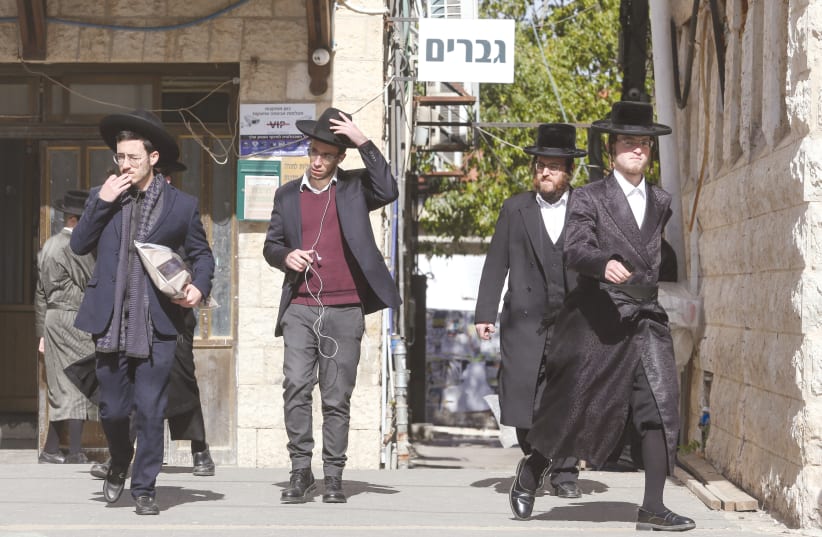The cities of Bnei Brak and Jerusalem, with their many haredi (ultra-Orthodox) residents, lead the nation in numbers of coronavirus patients with 267 and 352 respectively, Channel 12 reported on Friday.
It is thought that a small minority among the community finds it difficult to adjust to the new Health Ministry regulations as they forbid mass prayer, large weddings and studying in big groups – all of which are vital to the haredi way of life.
The largely secular city of Tel Aviv, that has more than double the number of residents than Bnei Brak, is tied for second with 267 patients. This despite social media posts alleging that the residents of the first Hebrew city are lax in their social distancing and can’t give up their daily jogs and drinking coffee at the beach.
On Hebrew social media, a great deal of anger was expressed at some Tel Avivians for allegedly for not caring about the well being of the elderly, who are much more vulnerable to coronavirus, and insensitivity to the great number of people who are facing unemployment now due to the COVID-19 impact on the world economy.
Such ideas seem to predate the virus. Israelis often imagine Tel Aviv as being a city which is slightly hedonistic and self-absorbed like other cities in the world – such as Paris or New York are imagined in certain ways in France and the US.
Ashkelon is number four with 78 patients, Bat Yam was ranked five with 51 patients, Efrat and Haifa had 44 patients, and Beersheba had 43 patients.
The small Jewish religious community of Kiryat Ye'arim outside of Jerusalem had a local outbreak with 30 patients reported so far. Beitar Elit had 23 patients and Zikhron Ya'akov was at the bottom with 12 patients.
